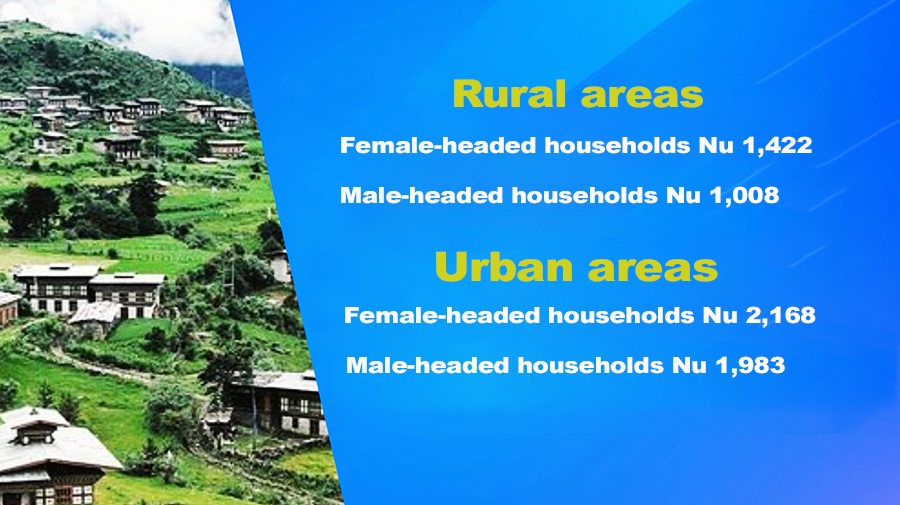 Spending on education is higher among female-headed households in Bhutan than male-headed ones. The latest Household Consumption and Expenditure Survey by the National Statistics Bureau showed that despite female-headed households being more concentrated in lower income groups, they spend at least around Nu 1,400 monthly on education.
Spending on education is higher among female-headed households in Bhutan than male-headed ones. The latest Household Consumption and Expenditure Survey by the National Statistics Bureau showed that despite female-headed households being more concentrated in lower income groups, they spend at least around Nu 1,400 monthly on education.
According to the report, more than 60,000 households in Bhutan are female-headed, with the most in districts such as Bumthang, Punakha, Paro, Gasa, Tsirang, Trashi Yangtse, and Lhuentse. The report surveyed nearly 160 thousand households.
According to the National Statistics Bureau, the head of the household is the person who manages the income earned and expenses incurred by the household and who is the most knowledgeable person about other members of the household.
In rural areas, female-headed households spend Nu 1,422 compared to Nu 1,008 for male-headed households, reflecting a stronger investment in education among female-headed households.
This trend persists in urban areas, where female-headed households allocate Nu 2,168, surpassing male-headed households at Nu 1,983.
Within education spending, the survey found that college and university studies take the largest share at 41.6 per cent. This is followed by middle and high school at 33.4 per cent, and primary school and ECCD at 21.6 per cent.
The smallest share, 1.3 per cent, is spent on training or courses, such as vocational programmes or diploma courses, before attending colleges. 2.2 per cent is used for other learning needs such as private tutors or exam coaching, mostly in urban areas.
An economics professor at the Royal Thimphu College, in a written interview, stated that this reflects changing social norms and priorities in the country.
He said in the past, education was often considered a luxury, particularly for girls. However, increasing female literacy and policies promoting girls’ education have reshaped attitudes.
Furthermore, RENEW which works closely with women and children across Bhutan, said that women spending more on education helps secure a better future for their children.
Dolma, the director of the Operation and Coordination Unit, RENEW said, “In my opinion, women truly understand the challenges of being dependent on a partner, especially when they do not have an education. They want to ensure their children receive a proper education so they won’t face the same struggles or hardships. I believe this is why women tend to invest more in their children’s education.”
What these numbers reveal is more than just spending habits; they tell a story of determination, hope, and shifting priorities. Female-headed households in Bhutan are not just managing finances; they are making decisions to secure a better future for their children through education.
Kinley Bidha
Edited by tshering Zam







